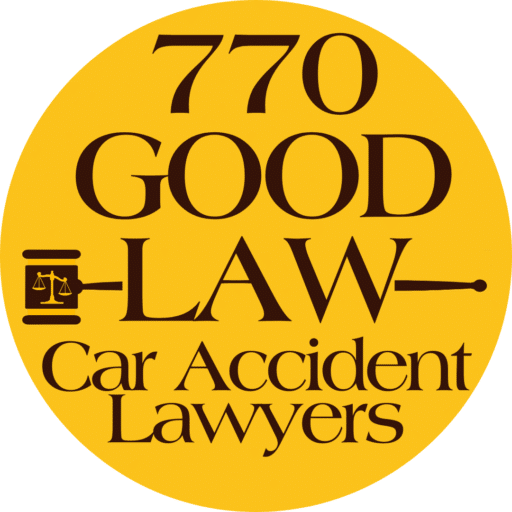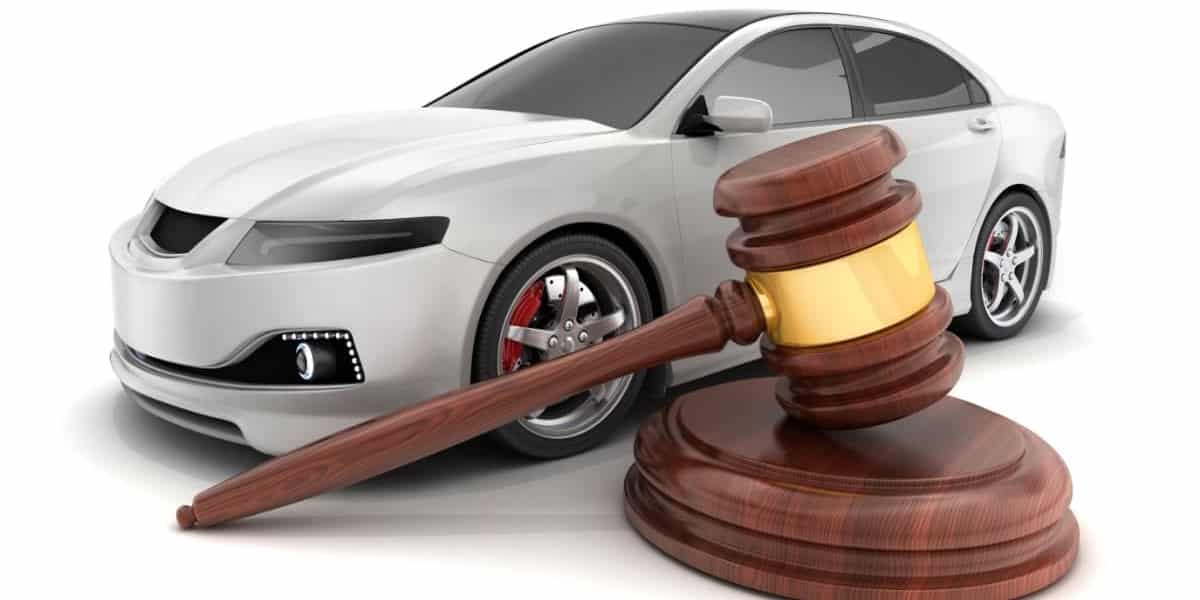Good Accident Lawyers: Your Guide to Winning Legal Support
Good accident lawyers offer expert legal representation and help secure fair compensation for injury victims. They provide guidance through the legal process.
Accidents can be life-altering, causing physical, emotional, and financial distress. Finding a good accident lawyer is crucial to navigating the complexities of your case. A competent lawyer ensures your rights are protected and works tirelessly to achieve the best possible outcome.
They handle everything from gathering evidence to negotiating with insurance companies. This allows you to focus on recovery without the added stress of legal battles. Quality accident lawyers often work on a contingency fee basis, meaning you pay only if they win your case. Choosing the right lawyer can make a significant difference in your journey to justice and recovery.
Finding The Right Lawyer
Finding the right lawyer after an accident is crucial. A good lawyer can make a significant difference. They help in getting fair compensation. Below are some important tips to find the right lawyer.
Qualities To Look For
When searching for a good accident lawyer, consider the following qualities:
- Experience: Look for a lawyer with experience in accident cases.
- Reputation: A lawyer with a good reputation is more reliable.
- Communication: Choose a lawyer who communicates clearly and promptly.
- Track Record: Check their success rate in similar cases.
- Empathy: A good lawyer shows empathy and understands your situation.
Where To Search
Finding the right lawyer can be overwhelming. Here are some places to start your search:
- Online Directories: Websites like Avvo and Martindale-Hubbell list lawyers.
- Referrals: Ask friends or family for recommendations.
- Bar Associations: Local bar associations provide lists of qualified lawyers.
- Reviews: Read online reviews from previous clients.
- Consultations: Schedule consultations to meet and evaluate potential lawyers.
Here is a summary of where you can search:
| Source | Description |
|---|---|
| Online Directories | Websites listing lawyers with reviews and ratings. |
| Referrals | Recommendations from friends or family. |
| Bar Associations | Lists of qualified lawyers from local bar associations. |
| Reviews | Feedback from previous clients available online. |
| Consultations | Meet and evaluate potential lawyers in person. |
Initial Consultation
The initial consultation with a good accident lawyer is crucial. It sets the stage for your case. This meeting helps you understand your legal rights. It also helps the lawyer assess your case’s strength. Preparing for this consultation can make a big difference. Below are key aspects to consider.
Questions To Ask
During the initial consultation, asking the right questions is essential. Here are some important questions:
- What is your experience with accident cases?
- What is your success rate?
- How will you handle my case?
- What are your fees?
- How long will my case take?
These questions help you gauge the lawyer’s expertise. They also help you understand the process better.
Documents To Bring
Bringing the right documents is vital for a productive consultation.
Understanding Legal Fees
Hiring a good accident lawyer can be a crucial step. Understanding how legal fees work is important. This ensures you know what to expect and avoid surprises.
Contingency Fees
Many accident lawyers work on a contingency fee basis. This means you pay only if you win the case. The lawyer’s fee is a percentage of your settlement.
- Typically, the percentage is between 25% and 40%.
- If you lose, you usually do not owe the lawyer anything.
- This structure helps those who cannot afford upfront costs.
Additional Costs
Besides contingency fees, there are additional costs involved. These costs cover various expenses related to your case.
| Type of Cost | Description |
|---|---|
| Filing Fees | Charges for submitting documents to the court. |
| Expert Witness Fees | Payments for professionals who testify in your case. |
| Administrative Costs | Costs for copying, mailing, and other office tasks. |
These costs can add up. It is important to discuss them with your lawyer.
Some lawyers might cover these costs upfront. They then deduct them from your final settlement. Always clarify this before hiring a lawyer.

Credit: theclarklawoffice.com
Building Your Case
To win a personal injury case, you need a strong foundation. Building your case involves detailed steps that can make or break your claim. Below, we dive into two critical components: Gathering Evidence and Witness Statements.
Gathering Evidence
Evidence is the backbone of any legal case. Start by collecting physical evidence from the accident scene. This can include:
- Photos of the accident scene
- Damage to vehicles
- Personal injuries
- Road conditions
Get copies of police reports. These documents hold valuable information. Record any medical reports and bills related to your injuries. These prove the extent of your injuries and the costs involved.
Witness Statements
Witness statements are crucial for your case. They provide an unbiased account of the accident. Follow these steps to gather effective witness statements:
Negotiating Settlements
Finding a good accident lawyer is crucial. A key part of their job is negotiating settlements. This process ensures you get fair compensation for your injuries and losses. A skilled lawyer will advocate for your best interests.
Evaluating Offers
Your lawyer will start by evaluating settlement offers. They will compare the offer to your medical bills and lost wages. This helps in understanding if the offer is fair. They will also consider future medical needs. Here’s a simple table to show what they might evaluate:
| Factor | Details |
|---|---|
| Medical Bills | Current and future expenses |
| Lost Wages | Income lost due to injury |
| Property Damage | Cost to repair or replace |
| Pain and Suffering | Compensation for physical and emotional pain |
When To Decline
There are times to decline a settlement offer. Your lawyer will advise you when the offer is too low. Here are key reasons:
- Offer doesn’t cover all medical expenses.
- Offer doesn’t compensate for future medical needs.
- Offer ignores lost wages.
- Offer doesn’t include pain and suffering.
Declining an offer is a strategic decision. Your lawyer will negotiate for a better deal. They will use evidence and expert testimony to strengthen your case.
Courtroom Strategies
Good accident lawyers know that courtroom strategies can make or break a case. It is essential to have a well-thought-out approach. This section dives into effective courtroom strategies. We will cover crucial tactics for presenting your case and cross-examination.
Presenting Your Case
Presenting your case is the first step. It sets the stage for the entire trial. A strong opening statement grabs the jury’s attention. Make sure it is clear and concise.
- Storytelling: Use a compelling narrative to explain events.
- Evidence: Present physical evidence like photos and documents.
- Witnesses: Call reliable witnesses to support your claims.
Visual aids can also be very effective. Charts and diagrams help clarify complex information. They make it easier for the jury to understand your points.
Cross-examination Tips
Cross-examination is a critical part of the trial. It can expose weaknesses in the opposing side’s case. Here are some tips for effective cross-examination:
- Preparation: Know the witness’s background and statements.
- Control: Ask short, direct questions. Keep the witness on track.
- Impeachment: Use prior inconsistent statements to challenge credibility.
Always stay calm and composed. Emotional reactions can undermine your authority. Maintain a professional demeanor at all times.
Post-trial Steps
After a trial, certain steps follow to finalize the case. These steps are essential for ensuring justice is served. They also help in securing the compensation you deserve.
Appeals Process
If you disagree with the trial’s outcome, you can file an appeal. The appeals process involves asking a higher court to review the decision.
Here are key steps in the appeals process:
- Notice of Appeal: File this document to start the appeal.
- Record on Appeal: Gather all documents and evidence from the trial.
- Briefs: Both sides submit written arguments.
- Oral Argument: Lawyers present their case to the appellate judges.
- Decision: The appellate court issues its ruling.
Appeals can take months or even years. Patience is crucial during this time.
Collecting Compensation
Winning a case is just the beginning. Collecting compensation involves several steps.
Here is what you need to do:
- Obtain a Judgment: This is the court’s final decision on the amount owed.
- Enforce the Judgment: If the other party doesn’t pay, you may need to take action.
- Wage Garnishment: A portion of the other party’s wages may be taken to satisfy the judgment.
- Bank Levies: Funds can be taken directly from the other party’s bank account.
- Property Liens: A lien can be placed on the other party’s property.
Each method has its own procedures and requirements. A good accident lawyer can guide you through this process.
Here is a table summarizing the post-trial steps:
| Step | Description |
|---|---|
| Appeals Process | Review of the trial decision by a higher court. |
| Collecting Compensation | Steps to ensure the awarded amount is paid. |
Understanding these steps is essential. It helps in navigating the post-trial phase smoothly.

Credit: 770goodlaw.com
Maintaining Client-lawyer Relationship
Building a strong client-lawyer relationship is crucial for successful legal outcomes. This relationship should be built on trust, transparency, and mutual respect. Good accident lawyers understand the importance of maintaining this bond. They employ various strategies to ensure their clients feel supported and informed throughout the legal process.
Effective Communication
Effective communication is the backbone of a solid client-lawyer relationship. Lawyers must keep their clients updated about their case. Regular updates can be shared through emails, calls, or in-person meetings. This ensures clients are aware of every development.
Clients should feel comfortable asking questions and expressing concerns. Lawyers need to respond promptly to these queries. Open dialogue helps in building trust and minimizing misunderstandings.
Setting Expectations
Setting clear expectations from the beginning helps in avoiding future conflicts. Lawyers must outline the potential outcomes of the case. They should explain the possible scenarios and timelines involved.
Clients need to understand their role in the process. This includes the documentation they need to provide and their responsibilities. Clear expectations ensure both parties are on the same page and work towards a common goal.
Ensuring Transparency
Transparency is key to a healthy client-lawyer relationship. Lawyers must be honest about the strengths and weaknesses of the case. They should provide realistic assessments rather than making false promises.
All fees and charges should be discussed upfront. A clear fee structure helps in avoiding financial disputes later. Transparency builds trust and fosters a positive working relationship.
Building Trust
Trust is the foundation of any relationship, including client-lawyer relationships. Lawyers should demonstrate their commitment to the client’s best interests. Ethical practices and integrity go a long way in building trust.
Clients should feel confident in their lawyer’s abilities and judgment. Trust ensures a collaborative and supportive environment, leading to better legal outcomes.

Credit: www.labovick.com
Frequently Asked Questions
What Makes A Good Accident Lawyer?
A good accident lawyer has experience, strong negotiation skills, and a successful track record. They should be compassionate and communicative.
How To Find A Reliable Accident Lawyer?
Look for reviews, ask for referrals, and check their credentials. Ensure they have experience in accident cases.
What Should I Expect From A Good Accident Lawyer?
Expect personalized attention, clear communication, and a strategic approach. They should work diligently to secure fair compensation.
How Much Do Accident Lawyers Charge?
Accident lawyers often work on a contingency fee basis. You pay only if you win the case.
Conclusion
Selecting the right accident lawyer can greatly influence your case’s outcome. They provide the expertise you need. A good lawyer helps navigate complex legal processes efficiently. Don’t compromise on your legal representation. Invest in a skilled accident lawyer to ensure justice and fair compensation.
Choose wisely for peace of mind and success.






